#yi jihye
Note
I dare you to think of any LJH meta
Yeah, ok! I mean I'm on a language kick so if you meant like a specific theme you wanted to ask about her fitting into then like lmk but I'll just do another name meaning breakdown here.
李 智 慧
^plum ^knowledge ^wisdom
이 지 혜
^ common surname ^ these two together often mean kind of like a wisdom/knowledge of overcoming ignorance/evil/chaos. has some reference in Buddhist texts.
TLDR;
the surnames in ORV group the characters together in interesting ways and some themes connecting the Lees are connection to KDJ's (and to KDJ thru extension of YJH's) past/childhood, and experience of growing in adversity (symbolized by plum meaning of Lee).
We know LJH is a Jeonju Lee because she's a descendant of Yi Seokgi in text. The stories of Admiral Yi Sunsin with Yi Seokgi and Lee Jihye with Na Bori parallel in a way that emphasizes how the moral actions that define who becomes the hero of a story are context sensitive to a society.
Historical narratives/war movies typically portray a black and white of who was right and who was wrong that is supposed to seem obvious in hindsight, but are propped up too often as moral lessons that are always true, but will actually be different relevant to the standards of the current 'setting' (society).
Jihye's Hanja can refer to an understanding of some Buddhist concepts that represent an answer to ORV's question of 'how to survive in a ruined world' that Kim Dokja ultimately disagrees with.
Detailed explanation:
Surname Lee
Yi/Lee/Li is another one of those suuuuper common last names. 2nd most common in Korea and it trades places with 王 a lot in China's population count for #1 and #2 most common. (BTW Li is such a common translation of this last name despite modern Korean spelling of 이 partially because in. Middle Korean it has been spelled multiple ways [링,니,리] throughout history, partially because the word is so old and has to be written so often, it's survived multiple standardizations of the Korean language that English is still catching up to.) You can see the commonness of the name reflected in how so many ORV characters have this last name, (Lee Sookyung, Lee Hyunsung, Lee Seolhwa, Lee Gilyeong Lee Jihye...)
But if the usage was just reflecting 'commonness' then where are the 5 characters with surname 밝 omniscient reader where have the parks of the world gone omniscient reader did they all die in the subway car omniscient reader answer me.
... ok, I would argue that regardless of intentionality, the surnames in ORV associate some characters in ORV with the roles they each have and call attention to the similarities between them. Like, Han Sooyoung and Han Myungoh both play parts of like cartoonishly obvious villains in the early text (韓 has some national pride attached to it because it's one of few Hanja commonly used in modern Korean bc it literally just means Korea today, but the etymological root is that it's a picture of a fence so you could infer like Chinese calling a nation past dynasty borders the nation over the fence which implies a separation/opposition I suppose), Yoo Sangah and Yoo Joonghyuk have sort of an emphasized relationship to Kim Dokja I discussed a bit earlier, and Kim Dokja hates Kim Namwoon because he was projecting his self-hatred of a cringe younger version of himself onto him.
So the thing that stands out to me about LHS LSH and LJH is that they're all people who are related to Yoo Joonghyuk's "past". (Sn: I feel SYS is exempted from this grouping because of her unique position in relation to time/humanness/KDJ&YJH, her surname 申 is from Chinese astrology (stars and specific symbolism you could call daoism)/timekeeping a summer month around gregorian August, but is also used in Korean phrases associated with honesty/earnestness, w/ promises and requests) . Conversely, LSK and LGY are a few of the 'real' people of KDJ's world pulled into the scenarios by his influence and also kind of remind of his past/childhood. So I think this actually has to do with the meanings/associations of this surname's hanja
李 is easy to remember with the meaning of plum because it's a picture of a child 子 hanging down from a tree 木. Plums don't actually have as long of a history as you might think because relative to Chinese language in like 1250 BCE we only have evidence of domestic plums starting around 400 BCE. HOWEVER despite a lack of genetic evidence, Western Zhou inscriptions on bronze (which are called 金文 btw if you wanted to know that KDJ's name is like maybe even more related to lit history lol) have been found to contain this glyph:

Wherein, rather than tree, the little asterisk looking thing is actually the lingual precursor to 米 which as a noun means like a grain/grass/wheat type of situation. How does that make sense if the plum is from a tree and not a grass? Well, linguists speculate the character is pictophonetic and the precursor to 米 is just giving the sound of the character, but it could also be an implication of cultivation/domestication/having the nature of a crop in my opinion, which would be cool if true because inscriptions of this kind occur previous to 771 BC, which is 300 years before extant physical evidence implies plums were domesticated/cultivated.
(Sn: Sorry ok all this is very cool to me because I love how far back you can trace things in Chinese Language. Like if you think about where language begins, I'm reminded very much of the nature of humanity and how ORV puts it with the metaphor of the wall. The first evidence we have of Chinese writing is the oracle bones that Shang people used, and these scriptures showed an already fully formed language that may have been used on more degradable materials. But the oracle bones lend this sacredness to the idea of the written word. The Shang carved characters into ox bones and turtle shells to ask their ancestors questions, and the ability to communicate with ancestors to predict the weather, the relationship of an individual to the past, stood at the very foundation of many East Asian societies for centuries after this point. Yet you wonder, who was the first prophet of bones? Was the first pictograph we might call language an attempt to communicate to a deceased loved one? To ask a question? To write on a wall, not knowing if there was truly a reader on the other side? It's something I think of with this theme of impossible communication that ORV is making a statement with about all of literary history.)
Either way, the inclusion of the word child is significant, because it's not just tied to the fruit being 'born' from the tree, but possibly also the symbolic significance of the plum throughout literary history. This is because plum is very associated with the season of spring. Like literally if you've ever played mahjong or looked at old daoist texts I guess there's this whole thing where there are 4 flowers tied to the 4 seasons and the plum blossom is the blossom of spring. And you know when you literally have like old old old guiding religious texts that basically Explain what those seasons mean to people at the time that becomes the foundation of medicine/ruling philosophies you can see like there are some very consistent themes tied to the plum blossom and thus the character 李.
First is the idea of birth, which makes sense because spring is when the whole world is coming back to life after winter, and the flowers of the plum tree are one of the same. (Sn: a lot of daoist/naturalist influence in literary symbolism is based in the idea of scale... Like the galaxy is a microcosm of the universe, the planet is a microcosm of a galaxy, a human life is a microcosm of the planet, etc.) Because of this, the plum and spring sre associated with childhood/ the early stages of life, (as 子 implies). In this sense, it fits well that 李 would be used for important characters in raising KDJ (his mom and the people he admired in YJH's story) while also being used for LJH and LGY, whose youth in comparison to their harsh situation is often commented upon by the narrative. The other aspect of this meaning is the idea of blooming in spite of adversity, in that the first blooms of the plum blossom may appear when it still feels like winter, bringing the first signs of spring, thus the growing in spite of adversity. Thus, it makes a lot of sense to name a lot of the characters in a literal Apocalypse novel 李, they are blooming/growing in spite of their harsh circumstances.
(Sn: the history of plums/ stonefruit in East Asia is really interesting, sent me down a rabbit hole of trying to figure out what the first domesticated stonefruit was, but it's far back in time enough that 1 day isn't enough time to find that answer.)
In LJH's case in particular, 李 is also an important connection to the historical figure Yi Eokgi. This actually means she's one of few characters featured in ORV we have a Bon-gwan for, since Yu Eokgi was descendant from the Jeonju Yi clan (who made Korea's royal seal the plum blossom when they were in power btw). This is pretty interesting and ORV does like super get into it in the movie theater chapters, but I'll put some context here if you like do not know about Korean war history.
So war is a really interesting narrative in ORV because of a certain discourse on the sort of tokenization of tragedy in storytelling/propaganda. For instance, a huge theme of early Korean literature is the victory of Silla in the three kingdoms period, because extant Korean literature begins with the ancestors of the Silla nobles who conquered the peninsula. Thus, in tales of the three kingdoms, Silla may be portrayed in a better light/more accurately than Goguryeo and Baekje. Up to the modern day, these tales get retold over and over again with different actors, which is part of the point the arc about the war of kings was making, that these noble, dressed up pictures of war don't stand up to actual conflict or modern day issues, that they get rehashed over and over again as if to invoke some sense of national pride when in reality they've lost meaning/application to modern wars/society beyond the profit made by selling their recognizable images. (Shout out to Min Jiwon, her surname's hanja means 'pity' btw, lol) In contrast to this history, Admiral Yi Sunsin is someone who recorded his own history in logs without the intent of publication (as far as I'm aware), and his image/story was taken by the literate of his time only to be fed into that same content generating machine of the modern day, where war movies commercialize and glamorize the battles he fought. (Sn: ORV calls him by his posthumous title, wherein the Hanja for 'loyalty" was used despite the fact that Yi Sunsin notoriously disobeyed the emperors orders and was right to do it. This name kind of relates to this concept of the written word as a masking narrative bc he also had a given name that basically meant servant of the emperor and there's a famous letter where he was like this servant is going to do the opposite of what you said actually to the king) In the context of ORV and modern SK society, the military is just another industry the young people of today are filed in and out of, and men in particular are obligated and often made to feel there is a real need to participate in the industrial complex of modern warfare. So, this is relevant to KDJ's life experience of mentioning being sent to a bad post during his time serving, in the sense of showing war to actually be quite soul draining and unremarkable outside of fantasy.
So in the idea of considering Yi Sunsin 's Real Life story as something tokenized into "Narrative," Yi Seokgi is like almost less than a sidekick. He was a commander in Yi Sunsin 's first notable battle with Japanese forces, so the two often fought alongside one another, yet he's not the individual that is most often put with Yi Sunsin or remarked upon as his close 'comrade' in history, so it makes sense in the realm of ORV that maybe his story isn't well known. I personally think this is sort of because his story is tragic in the sense that the moral of it is to not follow orders of stupid government leaders who don't understand reality... In that he died because he went to a battle when the king ordered it after Yi Sunsin was arrested and stripped from his post for disobeying because he knew it was a stupid order. In addition, I've seen some conflicting versions of this, but some say he went to his own death over the side of the ship when Korea's loss seemed apparent.
So this is really interesting then in the concept of LJH and Na Bori (surname means Net btw). Because it puts LJH as this Yi Seokgi whose obedience to Narrative turned her into a Yi Sunsin. Like, in the epilogues we can see her interactions with Na Bori in that LJH is the younger one who gets teased and called crybaby, who relies on NBR. (What if I was casting myself overboard because of our impending doom and you were a net that caught me and we were both girls lol) Then, NBR takes care of her further by sacrificing her own life. Then, this is the incident that draws the character of Yi Sunsin 's (also I say his name here, but consider that the monikers of the constellations are actually pretty important in the meta narrative context of a Character, a being that symbolizes something in a story, an idea, rather than the actual real person with their own private emotions and such. Also how they aren't able to communicate directly until the point where KDJ himself is becoming like a character to us too. The constellations picking someone then who best understands their story/relates to it is a form of viewership/readership in a way) attention to this particular ancestor of Yi Seokgi, in a way that kind of shows a version of his own story, what if the young and inexperienced Yi Seokgi was the one to live instead? Would he become the same kind of hero in different circumstances? This concept of seeking your own narrative in the stories of others recurrs, obviously, all throughout the narrative of ORV.
(sn on that: I think that KDJ finding his own narrative in different ways between LJH and KNW is also important to the main narrative of survivorship that drives KDJ's initial interest in the world of WoS because of the fact that LJH's survivors guilt and indecision are, in contrast to KNW's over-enthusiastic ownership of the identity of "murderer" relate to the internal debate of KDJ's own self hatred, in that self-exoneration through blaming the situation is the side of KDJ's trauma that triggers his self-hatred/that he has to let himself misremember to keep on living. In opposition, LJH is a "murderer" who KDJ feels sympathy towards. In the world of WoS promised to KDJ in that very initial concept of "what if everyone you know had to kill others in order to survive?" The introduction of these early characters in ORV is always tied to that idea of how they had to become a killer in order to survive. In the beginning, compared to KNW, LJH is someone KDJ wants to see be dissimilar from that version of himself)
So the battle highlighted in the movie theater chapters is the battle of Myeongyang, which is pretty important. In history, basically what happened is that the court and king became convinced by a Japanese double agent that they could ambush a Japanese fleet in a certain area of the sea that Yi Sunsin had actually been to and knew there were like just some absolutely shitty awful rocks there and so, despite not knowing about the double agent plot, he refused to take his ships out there for no reason. This double agent plot was like literally set up because Yi Sunsin had defeated the Japanese fleets a few times and they wanted to lure him right to those shitty rocks and kill him. Turns out they didn't have to because the idiot king got so pissed at being disobeyed that he had Yi Sunsin locked up and like broke his legs and wanted to kill him also but got convinced not to. Yi Eokgi and others who had fought alongside tried to stick up for him, but Yi Eokgi was sent out with another commander to sail right into the trap. Then like I said, some tellings say he died by 'honorable suicide' at sea and some say he was run ashore and killed, I'm not sure. Either way, I'm pretty sure ORV is working with the former version. In that case, Myeongyang is the battle wherein Yi Sunsin had just been reinstated and rushed out to look for the fleet that never returned.
So this is why the movie about this battle reminding LJH of her dead friend connects, because, presumably, the sea attributed to her sickness is the location of Yi Eokgi 's suicide, parallel to NBR voluntarily giving her life to save LJH's.
Another narrative occuring here is, again, the parallel of the fantasy situation to the reality of this kind of trauma. Just like KDJ and other's skills only come into play in the world of WoS, the environment -specific nature of LJH's abilities is particularly emphasized with association to this sea that is a reminder of her greatest personal trauma. This is interesting because I think the overt message of this scene is KDJ forcing this idea of like using your trauma as a necessity to become stronger, which is very interesting in the context of helplessness to narrative and the fact that KDJ's idea of being like the sacrificial goat that has to endure all suffering for the sake of any happiness to occur in the world being the final boss of ORV... Also interesting in the context of the way natural human tragedy/history is edited into narrative visavis the commentary of historical narrative here.
Because if you look at YSS, he was this admiral whose greatest advantage was always just knowing the sea the best of anyone else. He knew where the shitty rocks were, and Myeongyang was named the battle of Myeongyang because when the king was like give up on finding our guys and just fight with the land troops he was like nah man I got 12 ships here and ships are only good if there's water, and he sent one of his boats to lure the Japanese fleet of like 300 guys into the Myeongyang straight that just had like hella whirlpools.
So the idea of someone who is weak on land but strong in the sea is very parallel to that aspect of trauma which is the fact that trauma responses are trying to prepare you to encounter traumatic situations again, and when you don't encounter those situations, they just linger and stay with you, and in some ways they become a weakness in dealing with everything other than that very specific situation you once experienced. So in this section KDJ is telling LJY to get over her trauma and use it for this specific situation, that having endured killing a human being once before, you are prepared to do it however many times it takes to keep living and get to the end... But again, the entire text of ORV is challenging this idea of "necessary" traumas, and YSS is someone whose story reflects this in an interesting way.
Because YSS and YSG's 'tragedy' as told by ORV was probably quite preventable in real life. It was not really 'necessary' for so many people to be killed in the previous battle for YSS to win the battle at Myeongyang, but the bearing these aspects have on the power of his narrative? Would this story be told so many times over if YSS hadn't faced such adversity before the most told legend of the 12 ships under his command retaking the sea from 300 Japanese ships? YSS's eventual death at sea is retold over and over, while YSG who also died at sea during battle could have died any one of a few different ways without public consensus. It reminds me of that theme of little tragedies in ORV, the idea of a personal tragedy that will never reach the scale of a great story or narrative. Because narrative in some ways asks a tragedy to justify it's existence, to have a reason to be told so many times over, to fit to a certain model of what others want or expect. Like in real life we should be looking at the idiot king from YSS's time and thinking hey maybe you should just listen to people who know what they're talking about instead of having an ego about it, what an asshole, it's stupid that the government system gave him the power to do that shit, etc. But in the context of narrative, an idiot king is basically a setting, the innate nature of an uncaring and cruel world context is static and immovable, and the hero's interaction/relationship with that setting creates plot. "This is just the way things are, it's so realistic" type comments evoke this aspect of fiction that seeking radical joy in narrative fights against. Because in this narrative of war, young people are asked whether or not they will die following orders or live disobeying them, but the answer in LJH and NBR is that whether or not obeying the order to kill or resisting the order to kill will lead to certain death is completely dependent on the will of that setting the which narrative does not dare challenge.
So the aspect of war narrative adds onto this idea of systems/narratives/what we see as 'reality' having to be torn away to find the true heart of something. Because the reality of war reveals is that all death is senseless, tragedy is an impediment to happiness, not a requirement or precursor. Our sense of narrative merely gives the two a false relationship.
You can be happy without suffering, you can suffer without being happy, and you can be happy after suffering and suffering after being happy... Human life isn't always so simple as a one-way transition between winter and spring
Given name Jihye
智慧
Basically this word means wisdom, so you could interpret the whole name as like growing into wisdom or having to do with how YSS's quotations are repurposed as aphorisms or something, but like I said these characters are actually also used to translate the concept of 'prajna' in sinicized Buddhist texts. It also means wisdom/understanding/insight but there are like specific concepts that are supposed to be being Understood in the context of Buddhism u know. Basically: 1 nothing lasts forever (impermanence), 2 what causes suffering (I think usually Buddhists say the answer to that question is desire, idk), 3 the lack of self which Chinese translate 无我 (there's a huge split on what that means depending on the tradition) and sometimes also a secret 4th thing that's basically like nothing has inherent/meaning/form besides the illusions we construct of them (void).
The reason I find this Buddhism connection interesting is because I think that Buddhist philosophy (just in my experience of others trying to convert me/telling me why they prefer it not saying this is the case for everyone who prescribes to any branch) does this thing religions do where it tries to answer an impossible to solve problem that humans have but I don't necessarily agree with the solution. Like lots of religions are kind of based just in this reality that people dunno what being dead feels like when they are alive and are trying to predict it through the lense of their own societies, but Buddhism is kind of unique in that most of the branches with extended afterlife mythos develop like way later on and it doesn't immediately try to describe the creation of the world or assert any similar myth whose details are actually extremely related to the context of the society it was originally told in and hard to relate to outside of that worldview, Buddhism starts from the point of a guy who tried being rich and tried being poor and was like, I suffered doing both of those things. They both kind of sucked. Which I think is part of why Buddhism has such this huge spread across societies so early on in history because the silk road goes both ways but Buddhism caught on like a wildfire in East Asia and maybe part of that is that when your dynastic lineages and model of society goes back so fucking long it doesn't actually seem feasible to change your society as much as it seems to be able to remove yourself from the stresses existing in that society causes you.
So, 无常, 苦, 无我,空。 Society feels permanent, but there is no permanence. Bitterness exists because of this illusion of society. The concept of 'me' a symbol that represents my being to others is not actually a truly solid, unchangeable thing. To be void of the desires, concerns and stresses in the world you cannot change is 空 in the sense of void/lack of activity, but also in the sense of freedom. (Sn: I think I like the Chinese translations of the last term more than the English "void," because most English speakers will picture a dark space and feel trapped, but Kong makes me think 'do you have some free time?' which I think lines up more with the Buddhist idea of 'freeing yourself' than like the idea of you are confined to your mortal existence or w/e)
So in relation to the concept of narrative, this idea of 'wisdom' demonstrates that reaction of interaction with a horrible setting/worldly suffering/trauma/ etc. I think that because the lack of interaction/removal of self from the world is characterized as a philosophical enemy of ORV wherein 'caring about others and being happy with others does not always require suffering and even if it does keep trying to be Happy' and emphasizes the idea of the importance of individuality and identity and personhood, the name of 'understanding' in this sense is representing that LJH initially has a worldview KDJ has to fight against. Because her lack of participation in the scenario to avoid causing more suffering is like the first conflict between her and KDJ and he convinces her to fight to survive/keep on living/ interact with her suffering in a way that kinda contradicts from the idea of 'escaping the self' you know. Because at the core of ORV is that question of how do you go on living when you've done something horrible? In this sense, LJH's 智慧 is just another one of the stock responses to trauma Kim Dokja must react to in a sequence.
(Sn: once more on the concept of how narrative can justify something horrible, LSK's narrative redeeming herself in the eyes of the public vs the horrible truth she was trying to conceal. The idea that killing is acceptable in the scenarios but KDJ must conceal a past of murder outside of that space. The side characters shown to delight in horrible acts as soon as the setting/worldview has changed to expect it in them and reward them for it.)
I also think that ultimately Jihye represents the first introduction to the "reincarnator" solution to the ruined world that is later followed up by Nirvana and YSA, and KDJ's journey through that is kinda like a journey to the east instead of west where separating from narrative and your most important relationships and sense of self are the final boss.
#cw existentialism#cw death mention#cw religion#cw war#cw suicide#i talk alot sbout plums here lol#orv spoilers#orv#omniscient reader’s viewpoint#lee jihye#yi jihye#li jihye#yi ji-hye#anonymous#ask
21 notes
·
View notes
Photo
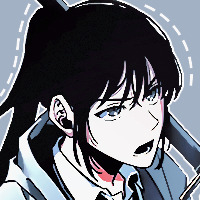
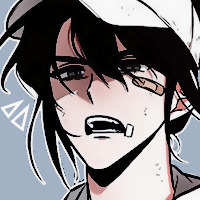
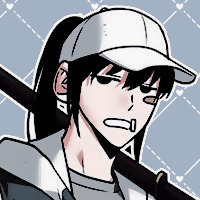
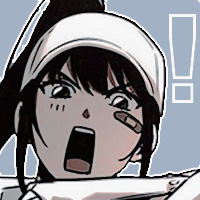
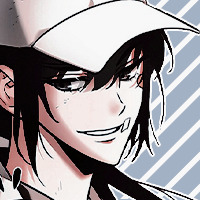
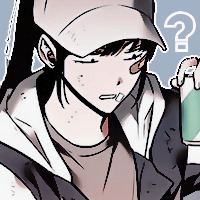

ੈ✩‧₊˚「 Never mind that, you were so cool today ! 」
┊ ┊ ✎ ... @heymoomin
#orv#omniscient reader#omniscient readers viewpoint#jihye lee#lee jihye#yi jihye#icons#edit#orv icons#orv edit#i'll properly add personal tags later
62 notes
·
View notes
Text
Han Su-Yeong asked her. “Okay, so. You two still together?”
Those words caused the companions’ attention to gather here. Jeong Hui-Won smiled bitterly and shook around her alcohol cup. “No, not anymore.”
“How come?”
“If we’re together, we get reminded of things.”
“….What things?”
Yi Ji-Hye and her sparkling eyes were urging Jeong Hui-Won on. However, the latter didn’t seem to be in much of a mirthful mood. She simply shook around her drink in silence. Yi Ji-Hye eventually closed her wide-open mouth.
#orv#omniscient reader#orv spoilers#omniscient reader's viewpoint#webnovel#sing song#sing shong#chapter 543#the omniscient reader's viewpoint#han sooyung#han suyeong#hsy#jung heewon#jeong huiwon#jhw#lee hyunsung#lhs#lee jihye#yi jihye#ljh
4 notes
·
View notes
Text
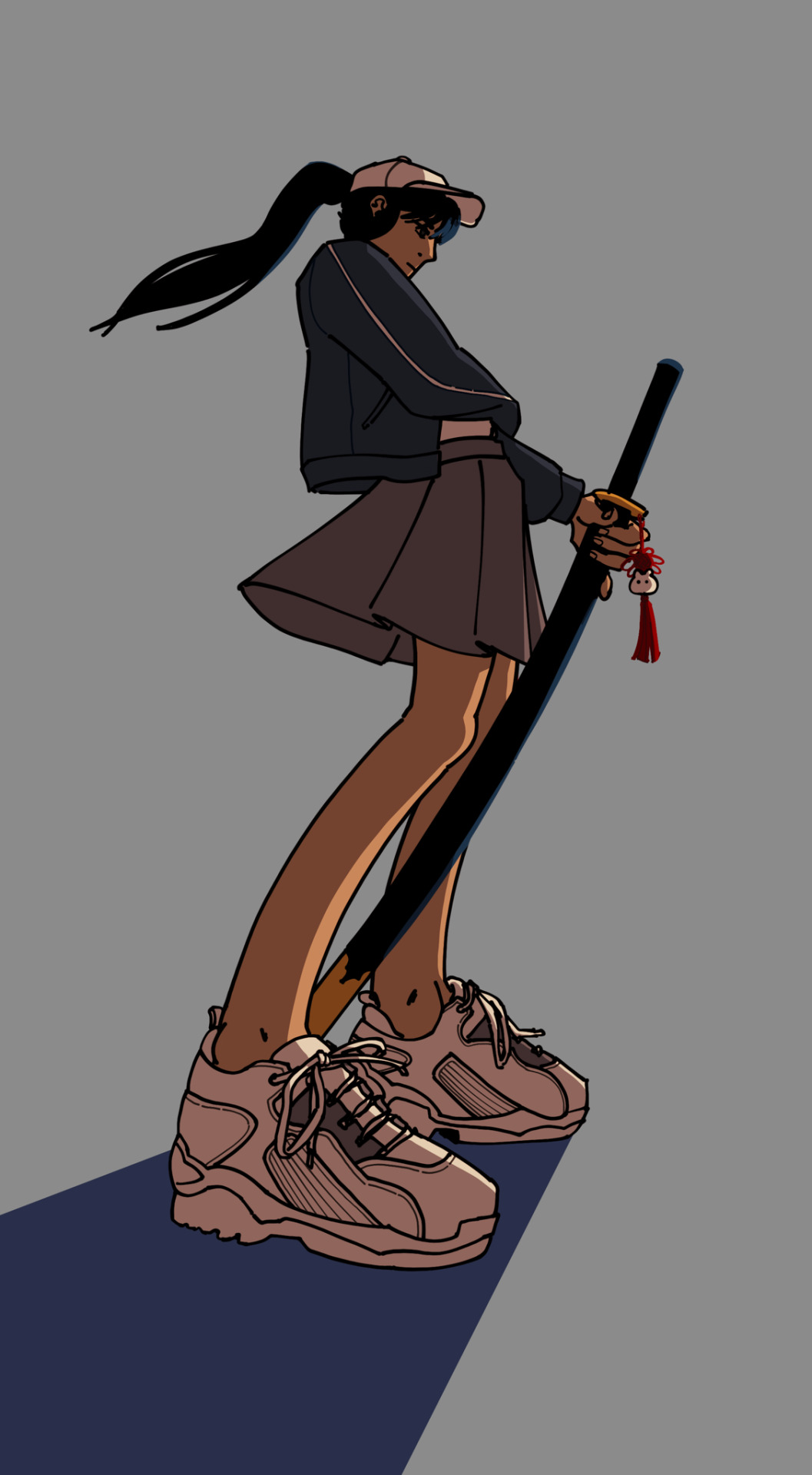
#lee jihye#yi ji-hye#orv#omniscient reader's viewpoint#my art#fanart#she makes me feel emotions about her#idk how to fully articulate but the grief and guilt and responsibility placed on her shoulders#id in alt text
624 notes
·
View notes
Text
closed starter ›› @lionsprcdes
who: jihye & akihito.

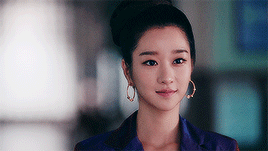
amusement wasn't an emotion commonly seen upon the empress' face, especially not in public. none of her siblings' antics had ever garnered it, though the fact that their immaturity impacted the family's reputation did factor into that. yet the corners of her lips twitched upon seeing akihito. or rather, his green hair. it made his mask utterly pointless and contrasted sharply with his black attire. ❝ did you think this was a costume party? ❞ she raised her wine glass and took a sip.
#i. yi jihye ›› thread.#i. yi jihye ›› with akihito.#i. verse ›› modern au.#i. event ›› charity ball.#( she said your hair is dumb and ruins your outfit )
7 notes
·
View notes
Text

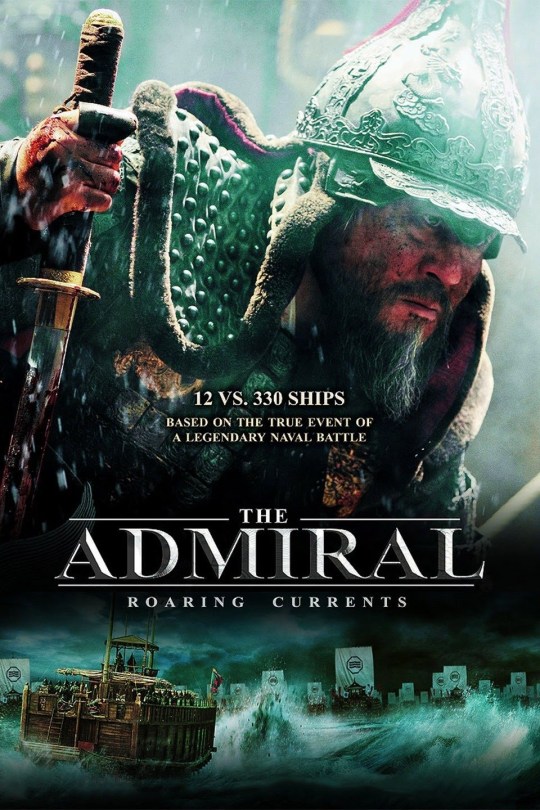
Alas for us non-Korean ORV fans over here in the English speaking bit of the fandom, there's a lot of specific cultural references that we miss while reading the novel or the webcomic. For example, given that Jurassic Park 'Birassic Park' is a real movie under a slightly different title, y'might have figured that 'The Battle of Myeongnyang' from Lee JIhye's awakening in Chapter 40 / Episode 40 is also very real. Admiral: Roaring Currents (2014) is still the most-watched movie of all time in South Korea and thanks to that popularity, the likes of you and me can watch it with english subtitles on Amazon and then immediately get kicked in the face with why the Duke of Loyalty and Warfare might be so inclined to like Kim Dokja.
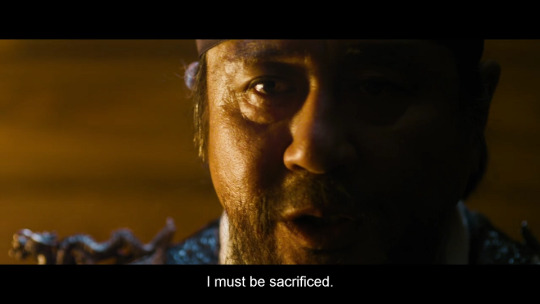
ANYWAY.
Speaking of other details an English speaker might miss, the Korean phrase translated as 'Duke of Loyalty and Warfare' is Chungmugong. Does that sound a little bit familiar? It should, because among our beloved naval constellation's many stories, South Korea went and named a street after him, and that street has a subway station. That's right. Lee Jihye, who shows up in Chungmuro Station? She starts in an area that's literally named for her sponsor. Truly, Three Ways to Survive in a Ruined World is that sort of contrived novel. And as someone who enjoys digging up and appreciating the little details in stories? I'm a fan.
#this has been your entirely unscheduled lee jihye posting#orv#lee jihye#omniscient reader's viewpoint#omniscient reader#the indescribable cultural distance of translation#yi sun-sin looking at fellow self-sacrificing leader KDJ and going 'ah yes you need my stigma': perfectly sensible in context#movie also very briefly features Lee Jihye's ancestor and the Maritime War God being a softie about his friend's kids#characterization: extended#next up: perhaps a post about where Biyhung's name came from#my posts#meta
86 notes
·
View notes
Text
If i were to write an orv story...
check reblogs for other options (if checking early, may take a minute for the other options)
40 notes
·
View notes
Text
Closed starter for @gcldforged ( Yi Jihye )
"I'm alright." Was their immediate answer as soon as they saw their older sister approaching their bed. Seung didn't like to be seen like this, weak and injured. They were supposed to be an important general among the Korean army, this did not look well for them and they knew they would get a lecture for allowing themselves to get shot like this. "Have you checked on Tae-Hyung? Is he doing well?" Obviously, Seung was more worried about their twin brother than about themselves, it had always been like that, since they were little.

15 notes
·
View notes
Text
thinking about gong pildu and how he goes from minor antagonist in an early worldbuilding scenario, to being relegated as a plot device for when they need someone on the kimcom's side to deal damage to a large number of enemies and yi jihye isn't there.
thinking about how we never see him and kdj having any meaningful interaction after his arc, but he goes to the 1865th regression with the rest to 1) save kdj and 2) save his family. and of how he left his family and returned to the 1864th regression and then moped afterwards.
do you think he did it because he didn't want to leave the non-kdj members of kimcom? did he have meaningful relationships with people in the 1864th?
or was being with his family again not what he thought it would be? did gong pildu change so much that his family looked at him like a stranger? was being with them again unfamiliar? did he remember and relive less happy aspects of his relationship with his family that was glossed over by his grief and nostalgia for the past? was he returning to the 1864th, or was he running away from the 1865th? what were his motivations and what goes on in his head?
34 notes
·
View notes
Photo








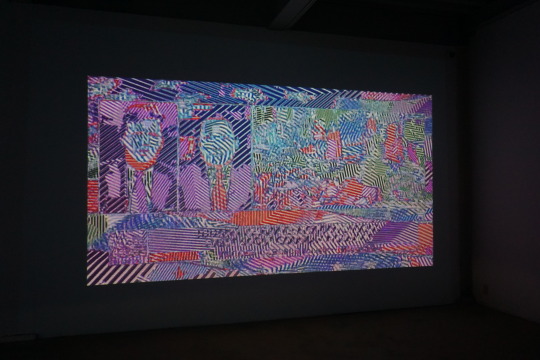
Color 2022
CICA Museum
September 7-25, 2022
2022.09.07 – 25
Featured Artists 참여작가: Ashley Andersen, Jihye Baek (백지혜), Marcus Brown, Reenie Charrière, Anna Choi (최안나), Nero Cosmos, Doug Dabbs and Julia Hagerty, Louise De Buck, Manal Deeb, Ruotong Guan, Belinda Haikes, Hodoo, Luna Sue Huang, Ruby Huh (허성윤), Hwang Ji Young (황지영), Kaloyan Ivanov, Ophelia Jacarini, Yvon Jolivet, Lesya Karebina, Andrew Kaufman, Kim na yoon (김나윤), Kimsunik (김선익), Sujin Kim (김수진), Taeeun Kim (김태은), Michael Laughlin, Chau Le Thai Huyen, Christine McCann, Rosalyn Ng, Maria Rita Nogueira, Anais Öst, Collin Pollard, Rebecca Potts Aguirre, D. Marshall Sharpe, Jaeho Shin (신재호), Jaeyoun Shin (신재연), Catalin Soreanu, Natsuki Takauji & Haksul Lee, Bart Vargas, Anthony Warnick, Yu Yan, Yi Hyunsuk (이현숙), Yu Seojeong (유소정), Xu Yuting, Anna Zhang
8 notes
·
View notes
Video
youtube
진 (Jin) 'The Astronaut' Official MV https://youtu.be/c6ASQOwKkhk 진 (Jin) 'The Astronaut' Official MV Credits: Director: Yong Seok Choi (Lumpens) 1st AD: Jihye Yoon (Lumpens) 2nd AD: Ran Ro (Lumpens) Director of Photography: Nam Hyunwoo (MOTHER) B Camera Operator: EumKo Focus Puller: Kim Eunki, Lee Youngwoo 2nd AC: Park Youngseo, Go Yuntae 3rd AC: Ahn Yeoeun LA Credits: Production Company: OUT OF OFFICE CO Executive Producer / Producer: Tiffany Suh Production Supervisor: Sina Pars Assistant Production Supervisor: Nina Nwachukwu 1st AD: Jesse Hays 2nd AD: April Mendoza Office PA: Collin Wade Client Liaison: Candy Yi Location Manager: Laura Dominguez, Alex Dominguez Camera Assistant: Robin Kim, Peter Byun Drone: Alex Castillo DIT: Miko Hughes Key Grip: Roman Reardon Best Boy Grip: Adam Urban Grip: Nick Deverian Production Designer: Arae Webner Art Coordinator: Michelle Hanzelova Set Decorator: Tyler Vogel Shopper: Katie DiFlore Prop Master: Hannah Olsen Prop Asst: Min-jay Kang Leadman: Camillo Castano On Set Dresser: Jason Nieblas Set Dresser: Kevin Ramon, Daniel Cosenza, Jeffrey Garcia, Andrew Kosum, Ian Buckley Featured Talent Stylist: Ann-Marie Hoang Set Teacher: Scott Plimpton Gang Boss: David Gonzalez Moho Drivers: Chris Mortimore, Rich Seitz, Darren Craig Stakebed: Dylan Myers Craft Services: Jimmy Campbell, Eva Scott Set Medic: Simon Kim, Jesus Ramos CCM: Alice Biletska CCA: Vlad Klimchuk PA: Josh Collins, Rudy Reyes, EJ Smith, Kyler Simmons, Dylan Sutherland, Randy Dizon, Jack Runnels, Jakob Hunter, Chris Fambro, Ryan Hall, Omar Guiterrez, Segye Jun, Rene Peraza, Saeed Chabayta Seoul Credits: Production designer / Art director: Bona Kim & Jinsil Park (Mu:E) Assistant art director: Minjung Kim, A yeong Choi (Mu:E) Team Mu:E: Jooho Jeong, Tae-gwan Nam, June Heo, Dae-young Kim, Seung-min Lee Art-team Manager: Ilho Heo (Mu:E) Gaffer: Kim Kyeong Seok Lighting Crew: Yoonki Kim, Seo Ah Park, Hanbin Sul, Hyun Seok Oh, Minwoo Kim, Jaewoo Park VFX: SECONDFLOOR VFX Supervisor: Dae Young Byun 2D Composite Lead: Ayoung Lee 2D Composite Artist: Young Jun Ko, Chea Young Kim 3D/FX Lead: Hye Ju Kang 3D/FX Artist: Geo Young You Project Manager: Seo Yun Kim DI: LUCID COLOUR COLORIST: WONSEOK KO DI CREW: JAEYEON BAEK, DAIN KIM, SEO JIN JANG, JI HYUN SONG DI PRODUCER: IN GYEONG CHOI Coldplay Unit: Director: Stevie Rae Gibbs DP: Tim Toda BIGHIT MUSIC. Rights are reserved selectively in the video. Unauthorized reproduction is a violation of applicable laws. Manufactured by BIGHIT MUSIC, Seoul, Korea. Connect with BTS: https://ibighit.com/bts http://twitter.com/BTS_bighit http://twitter.com/BTS_twt http://www.facebook.com/bangtan.official http://instagram.com/BTS.bighitofficial https://www.youtube.com/user/BANGTANTV https://www.tiktok.com/@bts_official_bighit https://weverse.onelink.me/qt3S/94808190 https://www.weibo.com/BTSbighit https://www.weibo.com/BTSmembers http://btsblog.ibighit.com #진 #Jin #TheAstronaut HYBE LABELS
0 notes
Photo
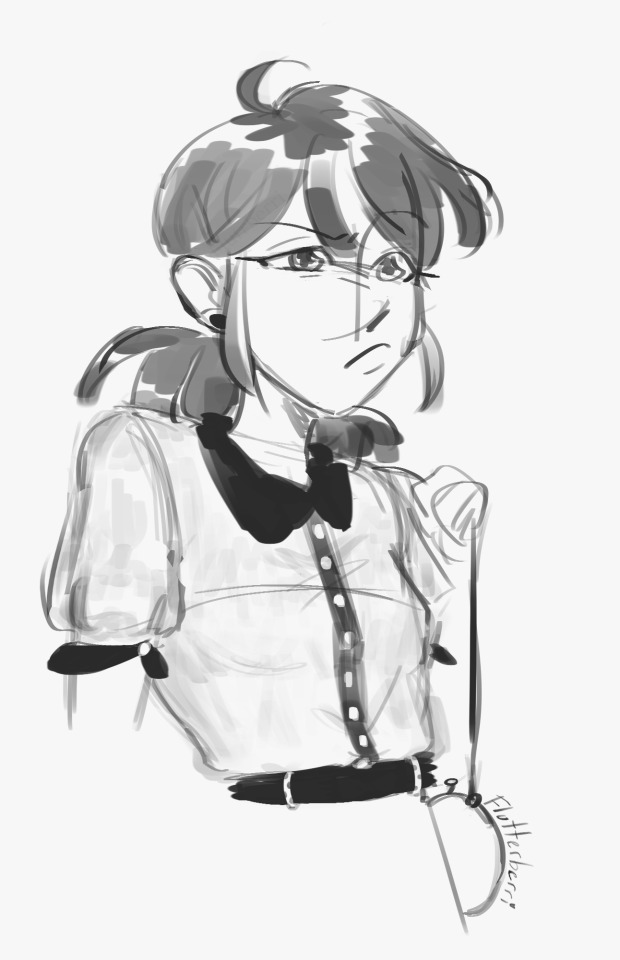


a small doodle dump (it’s mostly bust shots)
#mabinogi#miraculous ladybug#omniscient reader's viewpoint#marinette dupain cheng#jung heewon#jeong heewon#lee jihye#yi jihye#i really thought i'd never watch miraculous again... yet here we are#also i have a folder for orv fanart so hopefully i will make more#bc i really like orv!! its fun and i like the characters#also pls ignore the disparity of hair color in the last picture ty <3#doodle#my art
35 notes
·
View notes
Text
I couldn't stop laughing so I HAD to post this scene 🤣🤣🤣. I suddenly remembered this meme: (art by @shweezyliz)

• • • • • • • • • • • • • • • • • •
“What about other Constellations?”
I didn’t reply to her, prompting her eyes to narrow to a slit.
“Yet another nice-sounding suicidal plan….”
I spied Yu Sang-Ah next to her smiling gently just then. R-right, if it’s her, then she might side with me on this one.
[Someone is reciting the Constrictive Sutra….]
Her gentle lips began reciting something truly terrifying. I then spotted Han Su-Yeong in the distance with her hand massaging her temples while shaking her head.
‘I told you, it’s not going to work.’
I urgently shouted out. “H-hang on! It’s not a suicidal plan. It really is a proper plan. That’s why I’m bringing along both Ji-Hye and Hyeon-Seong-ssi.”
“H-mm….”
#webnovel#sing song#sing shong#orv spoilers#omniscient reader's viewpoint#omniscient reader#orv#chapter 469#great apocalypse arc#kim dokja#kdj#han suyeong#han sooyung#hsy#yu sangah#yoo sangah#ysg#lee jihye#yi jihye#ljh#yi hyeonseong#lee hyunsung#lhs#suicidal ugly squid#kim dokja is a masochist
37 notes
·
View notes
Text
I return the hopes I borrowed in the morning
Lee Jihye found an antique video recording device in Aileen's workshop, and being the enterprising teenager that she was, elected herself to make the best possible use for it.
ORV Women Week Day 3 Prompt Fill for Day 3:
Lee Jihye
8k and counting (i swear this was supposed to be a drabble sorry for being unwell)
Mostly Jihye-centric, but really it's Jihye & KimCom throughout the epilogues
Gen! Family fluff & minor angst!
Read it here
9 notes
·
View notes
Text
open starter ›› @francehqstarters
where: a room near the yi quarters.

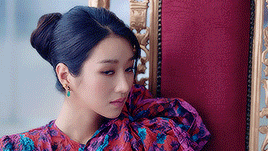
lunch sat half eaten and sketch of the view from the nearby window temporarily left half finished while the empress' attention shifted to a letter from home. so far her advisors hadn't been late with any of their correspondences nor had she. france might still demand their prolonged presence for a summit that was only growing more deadly but she continued ruling her people, and that meant remaining informed on the state of all matters. jihye turned to the next page as the door opened. she sighed softly. ❝ unless there's news on the traitors then this isn't a good time, ❞ she said, gaze not moving toward away from the letter until she'd finished reading the sentence. only then did jihye look up.
11 notes
·
View notes
Text
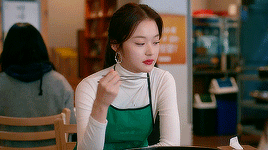
“you know, there’s this place.” she starts the conversation out of thin air, harmless, at first, but the smirk dancing on her lips tell it otherwise. “they have very good testimonials and it’s completely judgement free. it’s a feelings retreat. i think you would love going to one of their camp week.” ( @yijane )
1 note
·
View note